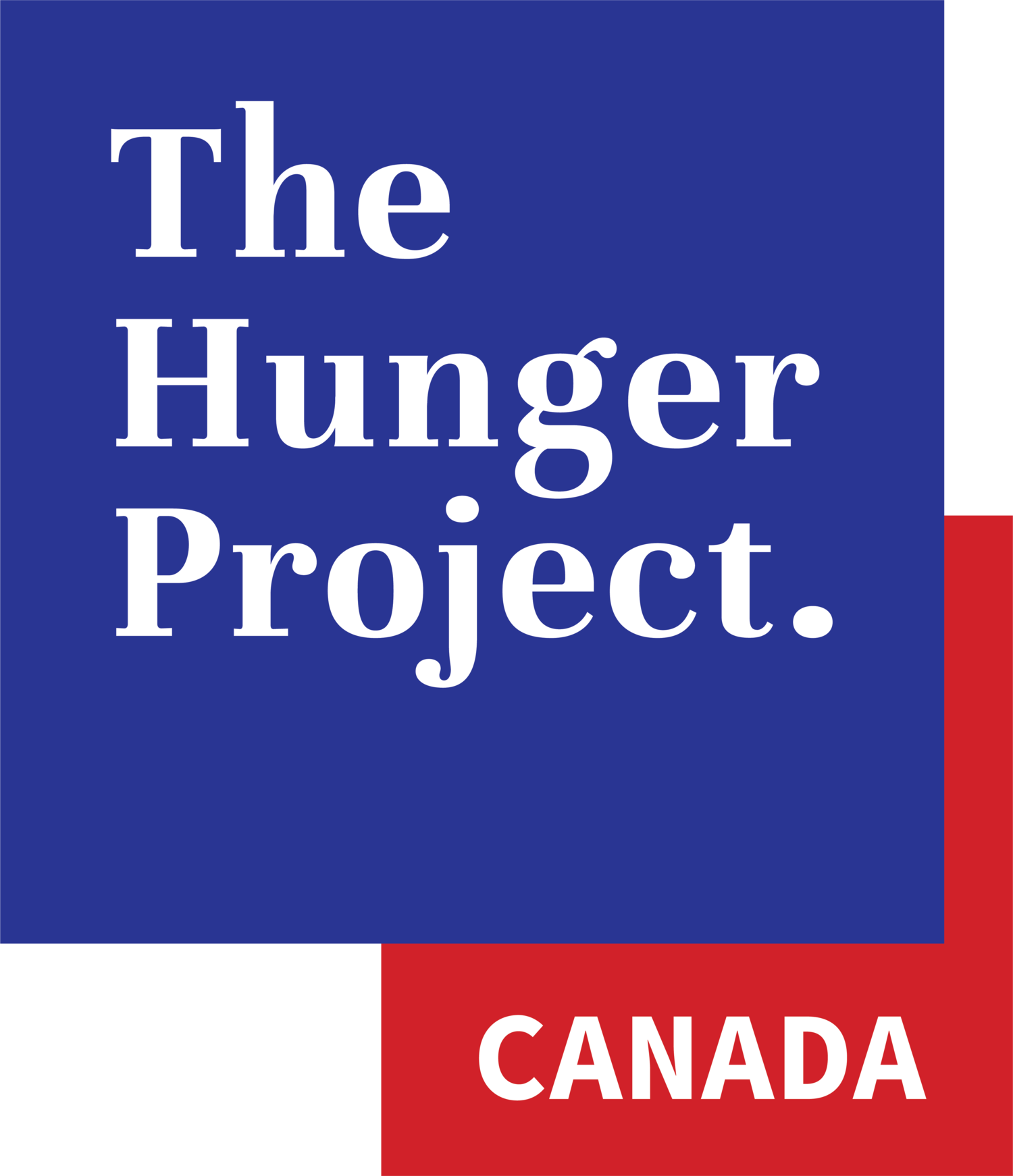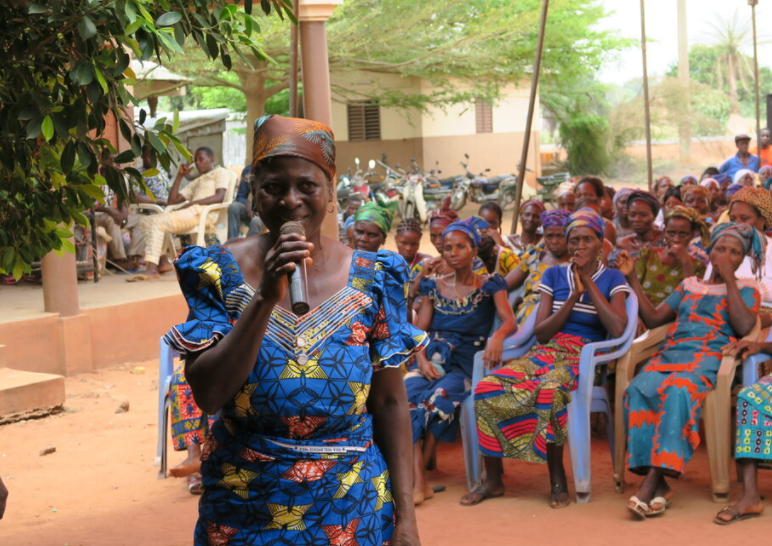BLOGS
An Open Call with Aissa Barry, Head of Programs, The Hunger Project Burkina Faso
Aissa Barry is Head of Programs for the Hunger Project (THP) Burkina Faso. She holds Masters Degrees in Management of Projects from ISIG International (now the Université Aube Nouvelle) and Master of Letters from The Université de Ouagadougou. She has been with The Hunger Project Burkina Faso for nine years where she has worked with rural communities across the country. Her experience has brought her to challenging situations, but has also revealed the resilience and determination of the people.
Aissa spoke about her work for The Hunger Project Burkina Faso, her experience with the displacement and resiliency of her own village (Toulfé), and the methodology at the heart of The Hunger Project programs.
Hers is a story of action, resiliency and hope. Read the blog HERE.
World Hunger Day 2022: How youth will pave the way in the fight against hunger, climate change, and conflict
Celebrate World Hunger Day 2022 with us as we highlight youth activists and initiatives around the world that are making strides towards one common goal: changing the world for the better—for the benefit of all.
5 Ways We Take Climate Action.
We are all living with the effects of climate change, but those living in conditions of hunger and poverty are at the greatest risk. That’s why we’re taking climate action to help build resilience in our work throughout Africa, South Asia, and Latin America.
5 Reasons the End of Hunger Starts with Women.
Wherever we work, our programs aim to support women and build their capacity because women are essential change agents to end world hunger. We start with women.
Break the Bias: Imagine a gender equal world
Join us on International Women’s Day (March 8, 2022) to show your support for women everywhere who are transforming gender equality and contributing to a better world for us all!
Climate Change X Ending Hunger.
Climate change and hunger are interconnected.
Droughts and severe storms impact water security and sanitation across rural and remote communities. This has resulted in 135 million people suffering from acute hunger, largely due to man-made conflicts, climate change and economic downturns.
What is chronic hunger? How are we ending hunger?
Up to 811 million people are suffering from chronic, persistent hunger around the world. Unlike famines that receive emergency-aid, chronic hunger is a silent, invisible, day-after-day condition.
5 Heart-Centered Holiday Activities. Part 2.
At The Hunger Project we have 10 principles that guide our work to end hunger. We challenge ourselves to ensure that each of our innovative strategies builds on these principles. In preparation for this holiday season, we challenge you to consider which of these principles can guide your holidays. We have some more ideas to get you started below!
Orange the World: End Violence Against Women!
The 16 Days of Activism Against Gender-Based Violence runs from November 25th (International Day for the Elimination of Violence against Women) to December 10th(Human Rights Day). This is a global campaign to take clear and decisive actions that will end violence against women and girls around the world. This year’s theme is Orange the World: End Violence Against Women Now!
5 Heart-Centered Holiday Activities.
At The Hunger Project we have 10 principles that guide our work to end hunger. We challenge ourselves to ensure that each of our innovative strategies builds on these principles. In preparation for this holiday season, we challenge you to consider which of these principles can guide your holidays. We have some ideas to get you started below!
Invest in female leadership in India.
1 in 4 people who experience hunger, live in India. Although India’s economy is growing fast, not everyone benefits. Everyday, millions of Indians do not have enough to eat – especially in rural areas. And this happens despite hunger being the biggest solvable problem in the world.
Anju Organizes Hygiene and Food Distribution
In Bangladesh, we have been catalyzing change for more than two decades, mobilizing people and resources at the grassroots level, and breaking down social barriers to ending hunger.
In March 2020, Anju Anwara Moyna, a long-time volunteer community leader with The Hunger Project-Bangladesh, was determined to prevent the spread of COVID-19 in her district.
Liliana Shares Critical COVID Resources
As the pandemic began, Mexico faced an added challenge of ensuring that rural and indigenous communities could access accurate information about COVID-19, especially where the majority of people primarily speak indigenous languages. Local leaders in Chiapas and Oaxaca worked with The Hunger Project-Mexico and the World Health Organization to translate vital information into seven indigenous languages. And one woman took it a step further, recognizing a greater need and launching her own program to save lives.

















